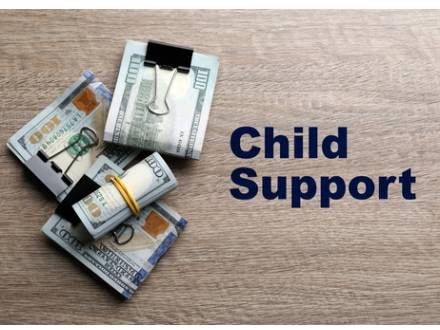Recent Blog Posts
When is a Guardian Ad Litem Necessary?
 As of 2026, Illinois courts continue to use guardians ad litem in custody and divorce cases where the child’s needs are unclear or disputed. Guardian ad litem appointments are not routine in custody and divorce cases, but they become critical when a judge needs independent information about a child’s best interests.
As of 2026, Illinois courts continue to use guardians ad litem in custody and divorce cases where the child’s needs are unclear or disputed. Guardian ad litem appointments are not routine in custody and divorce cases, but they become critical when a judge needs independent information about a child’s best interests.
In 2025, family law data showed that only a small percentage of child custody cases require direct court intervention, which means guardians ad litem are typically reserved for the most contested or concerning disputes. These appointments usually signal that the court believes the child’s needs cannot be fully evaluated based only on the parents’ claims.
If you are involved in a high-conflict custody or divorce case, our Kane County, IL family lawyers can help you understand when a guardian ad litem may be necessary and how that appointment can affect your case.
What If My Ex is Spending Child Support on Frivolous Things?
 As of 2025, Illinois child support laws still prioritize the best interests of the child when addressing support concerns. The courts do not require a parent to account for every dollar of child support. However, they can step in if spending harms the child or support is not being used as intended.
As of 2025, Illinois child support laws still prioritize the best interests of the child when addressing support concerns. The courts do not require a parent to account for every dollar of child support. However, they can step in if spending harms the child or support is not being used as intended.
It can be upsetting to see your ex spend money on items that seem unnecessary while you are trying to make your child support payments to support your child responsibly. Our Geneva, IL child support lawyers can help you understand your legal options.
How Is Child Support Supposed To Be Used in Illinois?
Child support is intended to help cover a child’s basic living expenses. This includes housing, food, clothing, school needs, and medical care. It may also help with transportation, activities, and other day-to-day costs.
Under 750 ILCS 5/505, courts calculate support based on income and parenting time, with the goal of meeting the child’s reasonable needs. Once child support is paid, the receiving parent usually has discretion over how the money is spent, as long as the child’s needs are met.
Can You Date During a Divorce in Illinois?
 Divorce can take time, sometimes going on for several months or even years. During that time, dating other people is common. If you feel emotionally ready to move forward even though your case is still pending, there is no law that says you cannot. Illinois follows a no-fault divorce model, which means the court does not consider personal relationships as a reason for ending a marriage. However, while dating is allowed, it can affect certain parts of your case depending on how it impacts finances and family life. Speaking with our Kane County, IL divorce lawyers early in the process can help you understand where risks may arise.
Divorce can take time, sometimes going on for several months or even years. During that time, dating other people is common. If you feel emotionally ready to move forward even though your case is still pending, there is no law that says you cannot. Illinois follows a no-fault divorce model, which means the court does not consider personal relationships as a reason for ending a marriage. However, while dating is allowed, it can affect certain parts of your case depending on how it impacts finances and family life. Speaking with our Kane County, IL divorce lawyers early in the process can help you understand where risks may arise.
Can Dating During Divorce Affect Property Division in an Illinois Divorce?
Illinois divides marital property based on what is fair under 750 ILCS 5/503. The court looks at many factors, including income, debts, and how both spouses handled marital assets. Dating alone does not change how property is divided. However, issues often arise when marital money is used to support a new relationship.
Is Mediation Required Before Going to Court in Illinois Divorce Cases?
 Illinois law encourages couples to work out disagreements outside of court whenever possible. Mediation is one way to do that. It gives you and your spouse a chance to talk about important issues in a private setting instead of arguing in front of a judge. With help from experienced Geneva, IL divorce lawyers, you have someone to ensure that you receive a fair settlement.
Illinois law encourages couples to work out disagreements outside of court whenever possible. Mediation is one way to do that. It gives you and your spouse a chance to talk about important issues in a private setting instead of arguing in front of a judge. With help from experienced Geneva, IL divorce lawyers, you have someone to ensure that you receive a fair settlement.
What Does Divorce Mediation Mean in Illinois?
Mediation is a private process where you and your spouse meet with a neutral third person. This mediator helps both of you communicate and try to find common ground. The mediator will not side with either of you. They just try to help you reach an agreement on your own.
Under Illinois Supreme Court Rule 905, courts can order couples to attend mediation in some family law cases. They try to encourage you to cooperate with one another and reduce conflict. The goal is to solve disputes by discussing them civilly, rather than arguing. It can help you and your spouse make decisions together instead of leaving everything up to a judge.
Common Tax Considerations in a High-Net-Worth Illinois Divorce
 Understanding and addressing tax issues during a high-net-worth divorce is a necessity. Some assets may look valuable now, but can create hefty tax bills later. Other assets may require special forms or court orders before they can be divided. The more you know, the more you can help yourself avoid expensive mistakes. Talk to our Kane County, IL divorce lawyers today to learn more about your options for protecting your financial future.
Understanding and addressing tax issues during a high-net-worth divorce is a necessity. Some assets may look valuable now, but can create hefty tax bills later. Other assets may require special forms or court orders before they can be divided. The more you know, the more you can help yourself avoid expensive mistakes. Talk to our Kane County, IL divorce lawyers today to learn more about your options for protecting your financial future.
Are Alimony Payments Taxable in Illinois?
Illinois law refers to alimony as spousal maintenance under 750 ILCS 5/504. It is financial support from one spouse to the other after a divorce. When deciding whether maintenance makes sense in your situation, the court looks at each spouse’s income and earning ability in comparison to their financial needs.
How Long Does an Order of Protection Last in Illinois?
 An order of protection is a court order designed to prevent abuse, harassment, or threats. In Illinois, these orders can vary in length depending on several factors. When you have one, you need to know how long it will last and prepare for when it will end. An experienced Geneva, IL order of protection lawyer can help you understand your rights and represent you in court.
An order of protection is a court order designed to prevent abuse, harassment, or threats. In Illinois, these orders can vary in length depending on several factors. When you have one, you need to know how long it will last and prepare for when it will end. An experienced Geneva, IL order of protection lawyer can help you understand your rights and represent you in court.
What Are the Different Types of Orders of Protection in Illinois?
Under Illinois law, there are three main types of orders of protection:
-
Emergency order of protection (EOP): This order can be granted quickly without notifying the other person if there is immediate danger. Under 750 ILCS 60/217, an emergency order usually lasts between 14 and 21 days. After that, a hearing is scheduled to decide if a longer order is needed.
Do I Have To Keep Paying Alimony if I Am Retiring in Illinois?
 In Illinois, retirement can be a valid reason to reduce or end spousal maintenance, also known as alimony. However, the change is not automatic. You must show the court that your retirement creates a "substantial change in circumstances." This means that your income and financial situation have changed enough to make the current order unfair. An experienced Kane County, IL spousal maintenance lawyer can help you understand your options and guide you through this process.
In Illinois, retirement can be a valid reason to reduce or end spousal maintenance, also known as alimony. However, the change is not automatic. You must show the court that your retirement creates a "substantial change in circumstances." This means that your income and financial situation have changed enough to make the current order unfair. An experienced Kane County, IL spousal maintenance lawyer can help you understand your options and guide you through this process.
Does Retirement Count as a "Substantial Change in Circumstances" in Illinois?
Under 750 ILCS 5/510, a change in employment status can count as a "substantial change in circumstances" and therefore may be considered a good enough reason to modify your alimony agreement. For example, if you retire at 65 and your income drops because you no longer receive a paycheck, the court may decide it is unfair for you to keep paying the same amount. If you retire early by choice, the judge might decide that is not a sufficient reason to reduce support. The same is true if you still earn enough from pensions or investments. Every situation is different, so the court will review your entire financial picture before making a decision.
Is My Spouse Hiding Assets During Our Divorce?
 Hidden assets during the divorce process can unfairly impact how decisions about property, child support, and spousal support are made. To protect yourself, consider the signs that your spouse might be hiding property. Then, speak with our Geneva, IL divorce lawyers. We will fight to protect your rights and hold your spouse accountable.
Hidden assets during the divorce process can unfairly impact how decisions about property, child support, and spousal support are made. To protect yourself, consider the signs that your spouse might be hiding property. Then, speak with our Geneva, IL divorce lawyers. We will fight to protect your rights and hold your spouse accountable.
Signs That Your Spouse Could Be Hiding Assets During Divorce
Some people are not open about money during a divorce. If you notice unusual behavior, it may be a red flag. Some common warning signs that a spouse is hiding or dissipating assets include:
-
Sudden changes in spending habits: If your spouse begins spending large amounts of money without explanation, it may mean they are trying to reduce the balance of a joint account.
-
Transferring property or money to others: Some people move money into a friend’s or relative’s account to hide it until after the divorce.
How to Prepare for Guardian ad Litem Interviews in Illinois Custody Cases
 When custody disputes become complex, Illinois courts may appoint a Guardian ad Litem (GAL) to investigate the situation and make recommendations that serve the best interests of the child. A GAL has significant influence, and the information they provide to the court can directly affect the division of your parental responsibilities, including parenting time arrangements. Our trusted Kane County, IL guardian ad litem lawyers can help you prepare for the process.
When custody disputes become complex, Illinois courts may appoint a Guardian ad Litem (GAL) to investigate the situation and make recommendations that serve the best interests of the child. A GAL has significant influence, and the information they provide to the court can directly affect the division of your parental responsibilities, including parenting time arrangements. Our trusted Kane County, IL guardian ad litem lawyers can help you prepare for the process.
What Does a Guardian ad Litem Want From an Interview?
Think of a GAL as the "eyes and ears" of the court. Under 750 ILCS 5/506, judges can appoint them to represent your child’s best interests in disputes over the allocation of parental responsibilities, more commonly known as custody and visitation. During interviews, the GAL is looking for more than surface-level answers. They want to know that you are capable of providing a safe, stable, and supportive environment for your child. The GAL will also ask about your child’s medical needs, education, extracurricular activities, and relationships with extended family. Be prepared to give specific, honest, and thoughtful answers.
How Do You Challenge an Unfair Prenuptial Agreement in Illinois?
 A prenuptial agreement, or prenup, should bring peace of mind, not anxiety. If yours feels one-sided or rushed, you still have choices. Illinois courts look at how the agreement was made and what each person knew at the time they signed it. With the right facts, a judge can limit or throw out terms that clearly favor one side over the other. First, you need to speak with a Geneva, IL prenuptial agreement attorney to find out more about the specifics of your case.
A prenuptial agreement, or prenup, should bring peace of mind, not anxiety. If yours feels one-sided or rushed, you still have choices. Illinois courts look at how the agreement was made and what each person knew at the time they signed it. With the right facts, a judge can limit or throw out terms that clearly favor one side over the other. First, you need to speak with a Geneva, IL prenuptial agreement attorney to find out more about the specifics of your case.
What Makes a Prenuptial Agreement Unfair Under Illinois Law?
Some reasons a judge may treat a prenup as unfair include:
-
You were pressured to sign, for example, if there were threats to cancel the wedding or very little time to decide before the wedding was scheduled to take place.


 630-844-8781
630-844-8781



